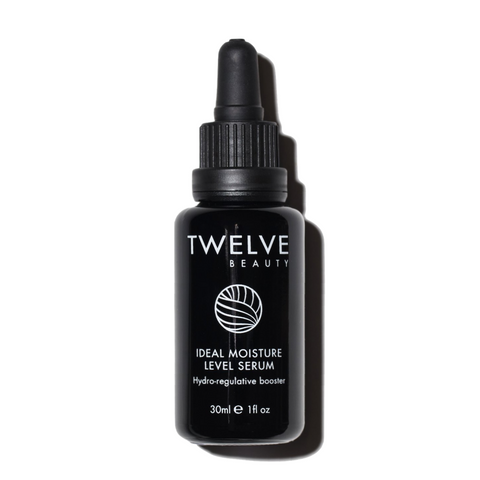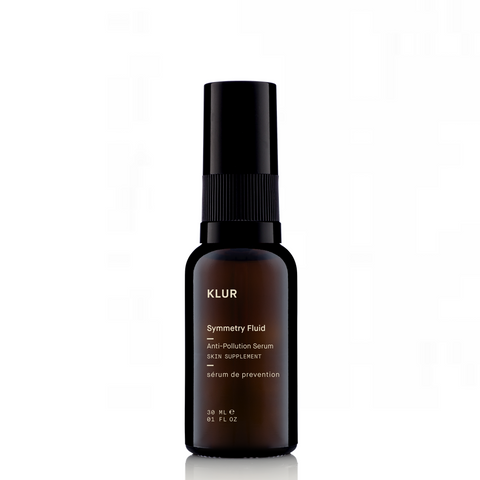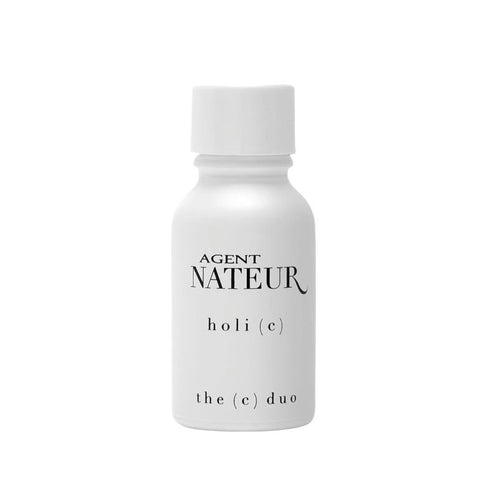Free shipping for HK orders HK$600+
Everything About Sensitive & Sensitized Skin
September 06, 2022
We have talked about oiliness and oily skin (here), as well as dehydrated and dry skin (here) in depth in our previous posts, today, we are going to talk about sensitive and sensitized skin. But first, let us ask you some questions.
For those who think or suspect they have sensitive skin, why do you think it is sensitive? Is it because it feels dry? Or because it gets red and itchy easily? Or because sometimes products sting?
Have you ever wondered, why is your skin sensitive? Or the better question is, is your skin actually sensitive or is it just sensitized?
Yes, there actually is a different. Sensitive skin is a skin type, and sensitized skin is a skin condition.
Let’s first help you understand the difference between sensitive and sensitized skin.
First and foremost, sensitive skin is a skin type, and is deeply rooted in one’s genetics and immune system. This means, if you truly have sensitive skin, you would have noticed from your childhood, as certain fabrics, foods, the sun, ingredients, or factors including asthma, food allergies, and allergic rhinitis, will make your skin red, swell, or breakout in rashes not only on your face, but also on your body, due to a high histamine level.
Sensitive skin types also tend to have less pigment in their skin, which means their protective barrier is naturally weaker, making it more easily affected by environmental factors.
Sensitized skin, although very similar in appearance to sensitive skin, is actually a skin condition, triggered by stress, chemicals, alcohol, medical and laser treatments, dust, weather, air-conditioning, pollutants, UV rays and certain skincare ingredients and practices, and all these factors lead to a damaged lipid barrier.
When this thin, protective barrier designed to keep irritants and pathogens out and moisture in is damaged, the skin loses its ability in defending itself against aggressors, and thus manifest as redness, breakouts, or rashes. This does not mean your skin is sensitive, or you're allergic to a certain ingredient——it is just sensitized.
Think about it this way. When you accidentally cut your finger or scratch your feet, even water can hurt and sting. The wound will also turn red, swell, and itch. A damaged skin barrier, is as much a wound as a cut and scratch, but just not easily seen by the naked eye.
In other words, experiencing redness, dryness, and stinging sensations after washing or scrubbing your face, staying in a dust-filled, air-conditioned room, or during weather change, doesn’t mean you have sensitive skin. It is more likely than not the result of a damaged skin barrier.
Here's an example. If you can drink alcohol, but skincare products containing alcohol can make your skin dry and red, then your skin is just sensitized, as alcohol damages the skin barrier, not because you're sensitive to alcohol.
On the other hand, if you cannot eat nuts due to allergy, skincare products containing nuts, for example, macadamia nut oil and sweet almond oil, may result in rashes that develop immediately or up to within 24 hours of contact. More likely than not, reactions will not be localized to the application site.
Sometimes though, you may not even be allergic to a skincare ingredient, but only to the one used in a particular product. For instance, one of our customers have no issues using any of our products that contain AHAs or BHA, yet her skin always break out in rashes immediately the next day using acid-based products from another brands. The reason is that the quality and origin of an ingredient, how it is processed, and the actual formulation of the product, are all very different, which is why a reputable, high quality brand matters.
Another point to note is the concentration of a particular ingredient. For example, hyaluronic acid naturally occurs in the body, thus is tolerated by almost all people. However, when it is processed into nano or super low molecular-sized, or the concentration is above 2% in a formula, it may potentially cause inflammation, which then lead to sensitivity and irritations.
When using a new product, it is always good to do a patch test in the inside of the elbow and around the neck or jawline. If rashes appear rather quickly and not limited to the application site, then there maybe something in it that you're allergic to.
On the other hand, if dryness, redness, and itchiness appear only at the application site both during patch test or actually using it on the face, it could be one or a combination of the below scenarios:
- Some ingredients stimulate blood circulation and microcirculation, thus if it's just redness, you shouldn't need to worry too much.
- The product contains actives, such as retinol and acids, that your skin just need to get used to. Use it once or twice a week to start with, then gradually increase frequency.
- The skin has already been sensitized prior to using the new product, so you just need to give the skin barrier time to heal first.
In fact, more often than not when your skin acts up, it has nothing to do with skincare products at all. Remember, your skin is an organ, thus can be triggered in many ways——sleep, stress, weather, food, drinks, medicine, health condition, and so on. It could simply be a pure coincidence. For example, if your internal histamine level is high, even your normal bed sheets can start giving your rashes. Or, if you're stressed, you will most likely get blemishes, whether you use new products, old products, or nothing at all. So don't always blame the new products first. Give it a break, and come back to it a few weeks later.
Now, although sensitive skin (a skin type that is genetic) and sensitized skin (a condition when any type of skin is irritated by external factors) are very different in nature, taking care of them are surprisingly quite similar.
1. Simplify Your Routine Until Symptoms Subside
When the skin is sensitive and sensitized, it is best to follow a simplified skincare routine, as all those anti-acne, exfoliating, brightening, anti-aging products won’t perform well anyway, and even well-loved products can cause stinging sensations.
Morning and night after gentle cleansing, choose a soothing toner with simple ingredients and formula as the first step, to balance, rehydrate, and prep the skin. Then follow with a serum and oil containing soothing, fortifying nutrients to keep the skin barrier healthy. Phytosterols, phytonutrients, antioxidants, anti-inflammatories, minerals, allantoin, and vitamins such as niacinamide (vitamin B3), and panthenol (vitamin B5), are all excellent in improving the barrier function and soothing sensitive and sensitized skin.
Product Recommendation
TWELVE BEAUTY
Ideal Moisture Level Serum <- Click to shop
Product Recommendation
AGENT NATEUR
holi(water) Hyaluronic Pearl & Rose Essence <- Click to shop
____________________________________
2. Protect the Barrier
Whether you have sensitive or sensitized skin, your skin barrier is the most important piece of puzzle to all your skin concerns, so protect it at all costs!
First of all, use a gentle non-foaming cleanser, and no harsh foaming cleansers, scrubs, cleansing brushes, and soap. Also, do not pick, scratch or rub the skin. This is because the constant friction and alkalinity can break down the skin’s lipid barrier, and with a damaged lipid barrier, the skin won’t be able to retain moisture or block out bacteria and irritants, which will lead to dryness, dehydration, inflammation, irritation, and even acne, premature aging and hyperpigmentation.
Secondly, use water around 38℃ - 40℃ to wash the face——water too cold won’t get rid of dirt and daily grimes efficiently, and water too hot will damage the barrier.
Thirdly, wear sunscreen, and preferably make up as well. The former will protect the skin from UV rays, and the latter will form a physical barrier between the skin and environmental aggressors, both of which can damage the skin barrier.
And finally, avoid harsh alcohol in skincare products. It is often used to help with evaporation for a lighter, fresher and dry-to-touch sensation, but it is also this particular property that may irritate the skin. These drying alcohol usually appear as Alcohol, Alcohol Denat., Isopropyl Alcohol, Methanol and SD Alcohol in a product’s ingredient list. When used in high concentrations, they deteriorate the skin’s protective barrier, rendering it ineffective at keeping moisture in and bacteria out, while stimulating oil production. These all may lead to dryness, irritations, and breakouts.
Product Recommendation
TWELVE BEAUTY
Purifying Cleansing Beauty Cream <- Click to shop
Product Recommendation
Agent Nateur
holi(cleanse) Cleansing Face Oil <- Click to shop
____________________________________
3. Help The Skin Repair Its Barrier With An Oil Serum
As mentioned above, both sensitive skin and sensitized skin have a disrupted skin barrier. Worse yet, the levels of lipids that make up this barrier decline with age (which is why many people find their skin getting more easily sensitized as theyu get older). Thus in order to help nourish it back to health, it is vital to replenish the skin with oils.
By replenishing the skin with lipids, antioxidants, vitamins, minerals and polyphenols that are abundant in oils, not only will the skin feel moisturized, the skin will also be able to fortify itself, retain optimal moisture, fight free radicals, stimulate collagen production, and maintain a healthier, stronger barrier to effectively lessen symptoms of sensitive and sensitized skin.
Don’t worry, well-formulated oil serums are not greasy these days, plus all you need is 3-5 drops at a time. During summer, focus on using it in the evenings, but if you're extra dry, you may also want to use two drops in the mornings.
Oh, and remember to use it on damp skin!
Product Recommendation
KLUR
Unseasonal Kind Lipid Replenishment Oil <- Click to shop
Product Recommendation
ANFISA
LILOU Radiant Hydra Balm <- Click to shop
____________________________________
4. Add Probiotics and Prebiotics To Your Skincare Routine
Topical probiotics, aka the “good” live bacteria cultures, work by secreting anti-bacterial, antimicrobial and anti-inflammatory substances that penetrate bad bacteria and kill them before they trigger an inflammation, whilst providing a protective shield to keep bad bacteria from reaching skin cells, inhibit the growth of bacteria, yeasts, fungi, and viruses, as well as calming parts of the skin cells that want to react to the bad bacteria, thus stopping them from sending an “attack” message to the skin’s immune system that leads to redness, swelling, patchy skin, or acne-like bumps.
This is why probiotics are excellent for sensitive and sensitized skin.
Studies have also demonstrated that used on wounds, probiotics can exert an immunomodulatory effect by inducing “wound healing-promoting substances”, such as cytokines and growth factors, and produce certain bacteriocins that can sustain a wound-healing process.
Here is the problematic part——99%+ of products that claim to contain probiotics do not contain live cultures. This is because unless a product is in powder form or anhydrous, preservatives or antimicrobial agents are needed to keep products stable and prevent the proliferation of harmful microbes. This would render any probiotic cultures inert and therefore useless, as at the moment, there is no preservative system sophisticated enough to differentiate between “good” and “bad” bacteria.
In other words, only products that contain live cultures will be able to provide the activities and benefits mentioned above. As a consumer you WILL know, because they are ALWAYS specified and listed clearly by strains, and never ambiguous.
Whilst, prebiotics are food for the good bacteria. Just like you need to eat to stay healthy and strong, the good bacteria also need to eat to thrive. Ingredients such as baobab, stevia, oat, dandelion and various berries are all prebiotics, and are crucial in maintaining a healthy skin barrier to calm, reduce, and prevent sensitivity symptoms.
Product Recommendation
MARIE REYNOLDS LONDON
Restore <- Click to shop
Product Recommendation
MARIE REYNOLDS LONDON
Butter Balm <- Click to shop
____________________________________
5. Use Products That Creates a Protective Film On The Skin
By creating a physical, breathable barrier between the skin and daily exposure to pollution, free radicals and irritants, and boosting the skin’s resilience to oxidation and environmental stressors, the skin will be less susceptible to their assault, and will be much less reactive.
This is why you often find those who wear foundation all the time, for example Japanese and Koreans, actually tend to have better skin in the long-term, because contrary to popular believe, makeup does not suffocate the skin and prevent it from “breathing” (the skin does not respirate), it actually provides a physical barrier between the skin and the environment, as long as you are cleansing properly.
Product Recommendation
EATH LIBRARY
The Pure Wonder Active Serum <- Click to shop
Product Recommendation
KLUR
Symmetry Fluid <- Click to shop
____________________________________
6. Take Extra Care in Certain Skincare Ingredients
Certain ingredients, including glycolic acid and L’Ascorbic acid (an unstable form of vitamin C), can also be irritating if used everyday. In fact, the latter is known to cause sensitivity and acne in many skins.
The simple solution is choose ingredients that work in a similar yet gentler way. For instance, instead of glycolic acid, choose lactic acid, mandelic acid, or lactobionic acid. As for vitamin C, use sodium ascorbyl phosphate or tetrahexyldecyl ascorbate rather than L’Ascorbic acid.
It may take a little bit longer to see results, but using strong ingredients in high concentration in the hopes of achieving faster results will only sensitize the skin. Remember, slow and steady wins the race.
Product Recommendation
AGENT NATEUR
holi(c) The C Duo <- Click to shop
Product Recommendation
EATH Library
All Day Radiance Light Concentration Cream <- Click to shop
Start a Food & Lifestyle Diary
If you constantly have sensitive or sensitized skin, the best way to prevent future episodes is to find out what the triggers are. By starting a food and lifestyle diary, you may be able to identify the triggers and thus able to eliminate them in the future.
As mentioned above, a lot of skin irritation does not actually have anything to do with your skincare products. It is therefore beneficial to go back a few days, and ask yourself whether anything has changed. For instance, did the weather change suddenly? Did you use a new detergent, hair product, or towel? Did you wear a new piece of clothing? Did you eat something in excess or something you don’t usually eat? Did you turn on the air-con or heater? Did you go to places you usually don’t go or feel more polluted than usual? Have you been feeling unwell, not sleeping well, or stressed? Did you take any medication?
____________________________________
See If You're Deficient in Essential Nutrients
We know many of you are vegetarians, vegans, or going on constant diets, but remember, the skin needs oil and many other nutrients to maintain the lipid barrier and skin health (and don't forget our sebum production declines with age, making things worse). In fact, studies have revealed a lack of nutrients such as omega-3 and Vitamin ACDE, can increase the risk of skin problems such as sensitivity.
As beauty comes from within, please make sure you are giving your body enough nutrients, otherwise all the best skincare products won’t help.
____________________________________
Try to Destress
Stress has been proven to weaken our immune system, as well as slow down the skin healing process. Which means, if you fail to destress and get enough sleep, the skin barrier will be permanently in a weakened state. So sleep more, exercise, and do whatever you love to bring that stress level down!
Also in The Journal

The Hidden Culprits of Skin Aging: Autophagy Decline and Zombie Cells
January 07, 2026
Don't just mask aging—reverse it. Learn how clearing Senescent Cells and restarting Autophagy creates lasting youthful skin.

The Anti-Aging Gold Standard: How Retinol Reshapes The Skin
November 12, 2025
Learn why retinol is the gold standard for anti-aging, how it works, what similar ingredients exist, and some common myths and misconceptions.

The Gut-Skin Connection: The Path to Healthy Skin
October 26, 2025
Acne, eczema, rosacea, and sensitivity can all be linked to the gut health, and even gluten? Learn all about the connection between the gut and the skin.
+Recent Articles
-
The Hidden Culprits of Skin Aging: Autophagy Decline and Zombie Cells
January 07, 2026
-
The Anti-Aging Gold Standard: How Retinol Reshapes The Skin
November 12, 2025
-
The Gut-Skin Connection: The Path to Healthy Skin
October 26, 2025
-
The Secret to Reversing Skin Aging! How Growth Factors & Peptides Help Turn Back the Clock
October 13, 2025
-
The Best Ways and Times to Take Different Supplements
August 19, 2025
-
Luxury vs. Budget-Friendly Skincare Products——What Are Their Differences?
August 06, 2025
-
How to Prevent and Improve Post-Inflammatory Hyperpigmentation (PIH)
July 10, 2025
-
How to Prevent and Improve Post-Inflammatory Erythema (PIE)
July 08, 2025
-
The Ultimate Cleansing Guide to Improve Skin Conditions
June 03, 2025
-
Do You Have Sugar Face? How Does Sugar Affect Our Skin and Appearance?
May 20, 2025
Subscribe to get skincare knowledge delivered to your inbox!














